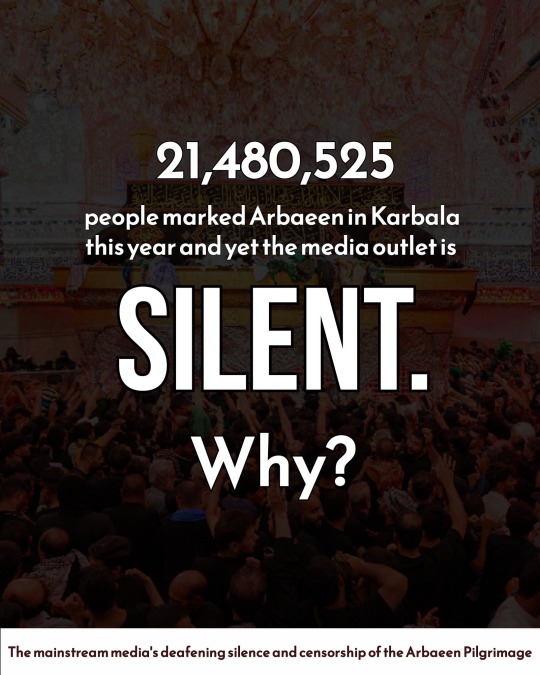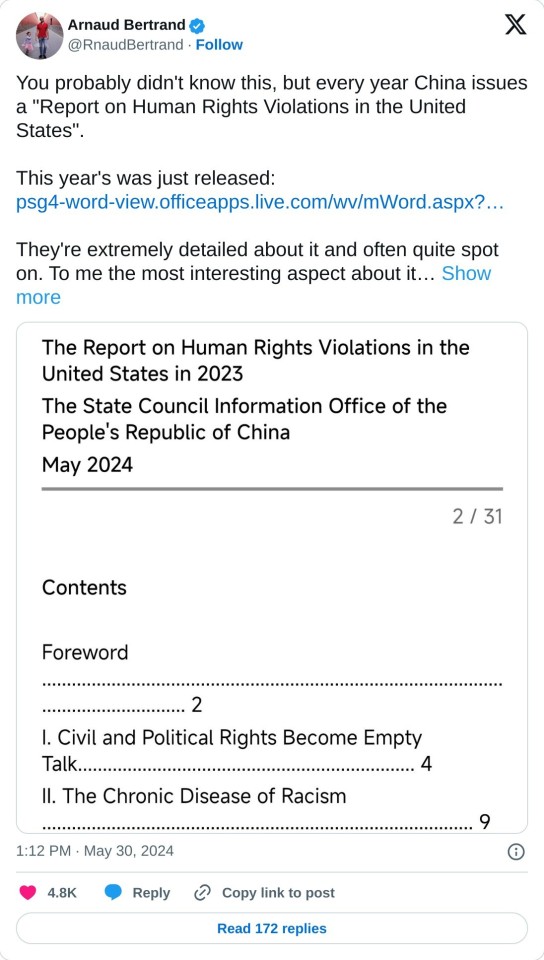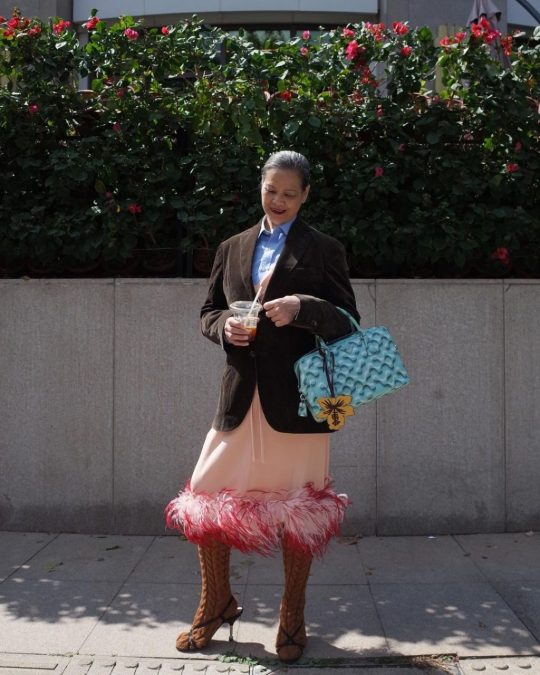#Social Value Annual Report
Video
youtube
Liverpool City Region Combined Authority 9th June 2023 Part 1 of 3
#youtube#Liverpool City Region Combined Authority#Annual General Meeting#Business Meeting#9th June 2023#Mayor Steve Rotheram#Wirral#Liverpool#Knowsley#Sefton#St Helens#Halton#Vote of Thanks to Retiring Members#Liverpool City Region Metro Mayor Announcements and Updates#Strategic Investment Fund - Investment Strategy 2023#Socio-economic Duty in the Liverpool City Region#Social Value Annual Report#Acceptance of Growth Hub Funding#Building Decarbonisation Update#Changes to Previously Approved Strategic Investment Fund Projects#Combined Authority Policy Framework 2023-24#Public Question Time
0 notes
Text
But what exactly is it about women's equality that even its slightest shadow threatens to erase male identity? What is it about the way we frame manhood that, even today, it still depends so on "feminine" dependence for its survival? A little-noted finding by the Yankelovich Monitor survey, a large nationwide poll that has tracked social attitudes for the last two decades, takes us a good way toward a possible answer. For twenty years, the Monitor's pollsters have asked its subjects to define masculinity. And for twenty years, the leading definition, ahead by a huge margin, has never changed. It isn't being a leader, athlete, lothario, decision maker, or even just being "born male." It is simply this: being a "good provider for his family."
If establishing masculinity depends most of all on succeeding as the prime breadwinner, then it is hard to imagine a force more directly threatening to fragile American manhood than the feminist drive for economic equality. And if supporting a family epitomizes what it means to be a man, then it is little wonder that the backlash erupted when it did—against the backdrop of the '80s economy. In this period, the "traditional" man's real wages shrank dramatically (a 22 percent free-fall in households where white men were the sole breadwinners), and the traditional male breadwinner himself became an endangered species (representing less than 8 percent of all households). That the ruling definition of masculinity remains so economically based helps to explain, too, why the backlash has been voiced most bitterly by two groups of men: blue-collar workers, devastated by the shift to a service economy, and younger baby boomers, denied the comparative riches their fathers and elder brothers enjoyed. The '80s was the decade in which plant closings put blue-collar men out of work by the millions, and only 60 percent found new jobs—about half at lower pay. It was a time when, of all men losing earning power, younger baby-boom men were losing the most. The average man under thirty was earning 25 to 30 percent less than his counterpart in the early '70s. Worst off was the average young man with only a high-school education: he was making only $18,000, half the earnings of his counterpart a decade earlier. Inevitably, these losses in earning power would breed other losses. As pollster Louis Harris observed, economic polarization spawned the most dramatic attitudinal change recorded in the last decade and a half: a spectacular doubling in the proportion of Americans who describe themselves as feeling "powerless."
When analysts at Yankelovich reviewed the Monitor survey's annual attitudinal data in 1986, they had to create a new category to describe a large segment of the population that had suddenly emerged, espousing a distinct set of values. This segment, now representing a remarkable one-fifth of the study's national sample, was dominated by young men, median age thirty-three, disproportionately single, who were slipping down the income ladder—and furious about it. They were the younger, poorer brothers of the baby boom, the ones who weren't so celebrated in '80s media and advertising tributes to that generation. The Yankelovich report assigned the angry young men the euphemistic label of "the Contenders."
The men who belonged to this group had one other distinguishing trait: they feared and reviled feminism. "It's these downscale men, the ones who can't earn as much as their fathers, who we find are the most threatened by the women's movement." Susan Hayward, senior vice president at Yankelovich, observes. "They represent 20 percent of the population that cannot handle the changes in women's roles. They were not well employed, they were the first ones laid off, they had no savings and not very much in the way of prospects for the future." Other surveys would reinforce this observation. By the late '80s, the American Male Opinion Index found that the largest of its seven demographic groups was now the "Change Resisters," a 24 percent segment of the population that was disproportionately underemployed, "resentful," convinced that they were "being left behind" by a changing society, and most hostile to feminism.
To single out these men alone for blame, however, would be unfair. The backlash's public agenda has been framed and promoted by men of far more affluence and influence than the Contenders, men at the helm in the media, business, and politics. Poorer or less-educated men have not so much been the creators of the antifeminist thesis as its receptors. Most vulnerable to its message, they have picked up and played back the backlash at distortingly high volume. The Contenders have dominated the ranks of the militant wing of the '80s antiabortion movement, the list of plaintiffs filing reverse-discrimination and "men's rights" lawsuits, the steadily mounting police rolls of rapists and sexual assailants.
-Susan Faludi, Backlash: the Undeclared War Against American Women
55 notes
·
View notes
Text

By Cameron Dorly | Published by SNN
Rainier, Prince consort attends a reception and gala dinner at the 8th Commonwealth Forestry Society’s annual gala in Norfolk. The Prince consort addressed visiting dignitaries and guests at the gala dinner as Norfolk plays host to the first Forestry Society gala outside of Greater Easton.

The Prince consort, wearing a blue tuxedo jacket, was greeted by crowds of adoring fans. The event, which lasts for two days, is being held outside of Easton for the first time.

His Royal Highness, a fervent supporter of action on climate change, told the gathering of 1,600 political and business leaders from over 115 countries the deterioration of “nature’s capital reserves” like water and soils can cause direct impacts on food and energy security.

The Prince consort was met by Guest speaker, prominent Windenburg architect and board leader, Bryan Shaffer, a Norfolk native.
Norfolk, about 130 miles east of Greater Easton, is home to Similhill Forestry the UK’s leading sustainable forest and timber harvesting company. As part of the Commonwealth Forestry Society, which is the UK’s largest forestry and timber business, Similhill offers a comprehensive range of services to woodland owners, public bodies, farmers, landowners and private companies across the UK.

The Prince met delegates before taking to the lectern and while much of the discussion was on congratulating The Prince on the recent coronation, it primarily focused on the desire to forge business links outside the UK.
“The tragic conflict in Sulani provides a terrifyingly graphic example, where a severe drought for the last four years has decimated Sulani’s rural economy, driving many farmers off their fields and into cities where, already, food was in short supply.” he said. “This depletion of natural capital, inexplicably, little reported in the media, was a significant contributor to the social tension that exploded with such desperate results.”
Shaffer said the importance of holding the forum in Norfolk could not be understated.
“The Prince coming here is a positive event at a time when everybody’s trying to create schisms,” he said. "The President, Trustees, Executive Committee and members of the Commonwealth Forestry Society are extremely proud of the work the Prince consort is doing. As Patron of the CFS, he is a true champion of the value of forests throughout the Commonwealth."
#SNN has the tea#SNN on ts4#simshousewindsor on snn#simshousewindsor#simshousewindsor royal engagements#simshousewindsor simblr#simshousewindsor ts4#simshousewindsor monarchy#simblr#simshousewindsor royalty#ts4#ts4 royalty#sims 4 monarchy#ts4 simblr
12 notes
·
View notes
Text
So there we have it. Laid bare for all to see, the pernicious effect of our national fixation with “diversity, equality and inclusion” (DEI). Aviva’s chief executive Amanda Blanc this week told MPs on the Treasury Select Committee that there is no senior “non-diverse” (white male) hire made at the company without her personal approval. There is no need, she implicitly admitted, to sign off on the appointments of non-white people and women. Most people would call that clear evidence of discrimination.
But don’t expect the Left-wing mob, usually so vocal in its condemnation of racism and sexism in all its ugly forms, to sharpen its pitchforks this time. Social media is not awash with calls for Blanc’s resignation, nor have demands for a boycott been issued. Others have suffered obloquy for far less: advertisers refused to be associated with GB News due to concerns over “bias”. McDonald’s was targeted after a location offered free food for the Israeli military.
Performative progressivism, as has long been suspected, doesn’t extend to campaigning against discrimination against white people or men. Perhaps we should thank the exquisitely named Blanc for giving the game away: rarely is the true purpose of DEI – not to, rightly, fight against hateful racism and sexism, but to position us all on an intersectional pyramid of victimhood, white men placed bottom – put so bluntly.
We have been drip-fed stories about “values” and “diversity”, when really those espousing it mean “conformity” with a particular worldview. Underpinned by the Equality Act, arguably one of the worst pieces of legislation foisted on the British public, DEI has marched through our institutions, stifling freedom of expression and stymieing economic growth along the way. Entire sections of annual reports are now devoted towards these activities: HS2’s 2022 statement was 52 pages long, much of it keenly explaining how many men had been excluded from the doomed project.
And make no mistake: the DEI industry is doing all it can to avoid becoming a victim of its own success. Thus, despite the clear evidence of the massive progress made in recent decades, we are warned ad nauseam that the country has never been so bigoted: English cricket is systemically racist, along with constabularies, the fire brigade, our criminal justice system and virtually any other area of public life. Women are still widely described as victims of the patriarchy.
Often, this is based on demonstrably false assumptions. Feminist activists noisily complain that the gender pay gap is widening, while other groups try to steal their oxygen with such absurdities as the “gender obesity penalty gap”, the “gender sleep gap” and the “gender play gap”.
Anyone who bothered to look at the gender pay gap data would observe that it is now negligible for those aged 22-39, with men pulling away later in life largely because of compensating differentials and free choice. Some women go part-time when they become mothers, many opt for less dangerous work, which is why workplace injuries are suffered overwhelmingly by men.
The average male life expectancy is 79 years, compared to 82.6 years for women. Less than 5 per cent of those in prison in the UK are female. When Tory MP Ben Bradley tried to ask an “equalities” question about white working-class boys in Parliament in 2020, he was warned that it may be turned down because it did not appear to be a question about protected characteristics. Yet this group are more likely than any of their peers to achieve less in school, less likely to go on to higher or further education and less likely to secure a well-paid career.
And now we discover that those who do buck the trend might not make it past the filters of the Diversity Queen at Aviva. This isn’t to argue that we should extend equality legislation to take in ever-wider groups, though the DEI gang are certainly trying, with “neuro-diversity” and “social class” their newest frontiers. Rather to insist that companies stop the smug virtue signalling and focus on the bottom line.
One could ask whether such granular involvement in recruitment is the best use of Blanc’s time, as boss of a FTSE 100 company. Is this the level of commitment to shareholder returns they were expecting, given there is little evidence of a causal link between diversity and profit?
Neither skin colour nor reproductive organs determine business acumen. Bosses should hire the best people for the role, irrespective of identity. Those who don’t are in the wrong job.
14 notes
·
View notes
Text

21,480,525 people marked Arbaeen in Karbala and yet the mainstream media is silent. Why?
Understanding the media's deafening silence and censorship of the Arbaeen Pilgrimage.
Typically, one of the primary factors that captures media attention is the scale of participation in public events. The larger the crowd, the greater the news coverage. But this principle seems to vanish when it comes to the annual Arbaeen pilgrimage - arguably the world’s largest peaceful gathering, with over 20 million participants.
If today's world comes to know the wonders of Arbaeen and its impacts, then you will see the people entering Islam in throngs, embracing the Shia School of Thought.
وَرَأَيۡتَ ٱلنَّاسَ يَدۡخُلُونَ فِي دِينِ ٱللَّهِ أَفۡوَاجࣰا
'And you see the people entering into the religion of Allah in multitudes'
[Surah Nasr - verse 2]
This might be one of the reasons why news about Arbaeen is so conspicuously censored.
Consider the contrast:
when protests or demonstrations involving a mere few hundred or thousand of people occur in global cities, news outlets are quick to provide extensive coverage. Reporters and journalists rush to cover events as varied as animal conservation efforts or minor local demonstrations.
Yet, when millions of pilgrims from across different faiths and nationalities converge for Arbaeen in Karbala, to commemorate the martyrdom of an infallible Imam (AS) and to reflect on his principles of justice, sacrifice, and coexistence, the mainstream media is eerily absent.
Why is it that a small protest in London or Paris makes headlines, but the world’s largest human gathering - where women, men, and children walk peacefully together - is largely ignored?
Arbaeen is more than just a religious pilgrimage. It’s a great spiritual journey, a form of jihad (struggle), and a powerful social movement centered around the legacy of an infallible Imam. There is a complete, divinely guided human figure at the core of this gathering. This unparalleled historical phenomenon is precisely why the news surrounding Arbaeen is often suppressed, especially in Western media.
In today’s world, dominated by consumerism and Western secularism, there is a growing crisis of spirituality and justice. As more people from diverse cultures and faiths seek balance and meaning in their lives, many are turning to Islam. This trend is causing increasing concern among non-Muslim governments, particularly in the West, where Islamophobic campaigns attempt to paint the entire Muslim community with the brush of extremism.
These same campaigns tend to spotlight radical ideologies, such as those of takfiri groups - movements often funded and fuelled by Western interests - and use them to generalise and distort the image of Islam as a whole.
In this context, Arbaeen emerges as a powerful counter-narrative. It showcases the true values of Islam: peace, sacrifice, justice, and co-existence. The millions who walk side by side during Arbaeen reflect the very opposite of the divisive images propagated by Islamophobia, demonstrating a message of unity and shared humanity that transcends all boundaries.
#arbaeen#make this blow up#make this go viral#mustshare#sharethis#must watch#ahlulbait#ahlulbayt#muharram#muharam#prophet muhammad#karbala#imam hussain#ali ibn abi talib#islampost#islamdaily#welcome to islam#like and/or reblog!#pls reblog#share this post#share if you can#pls share#like cmon#dontmissout#very interesting#very informative
5 notes
·
View notes
Text

[BANKSY]
* * * *
LETTERS FROM AN AMERICAN
October 27, 2023
HEATHER COX RICHARDSON
OCT 28, 2023
An article this morning jumped out at me. Catherine Rampell of the Washington Post noted that the U.S. economy “looks remarkably good.” A recent stunning jobs report, showing that the economy continues to add jobs at record rates—more than 13.9 million since President Joe Biden took office—along with yesterday’s stunning report that U.S. economic growth grew at an annual pace of 4.9% in the third quarter of this year, puts the U.S. economy at the forefront of most of the world. And inflation is back in the range that the Federal Reserve prefers—it’s at 2.4%, close to the Fed’s target of 2%.
The U.S. is outperforming forecasts made even before the pandemic began for where the economy would be now, even as other countries are worse off.
And yet, Rampell notes, Americans are about as negative about the economy today as they were during the Great Recession after 2008, when mortgage foreclosures were forcing people out of their homes and unemployment rested at about 9%, more than twice what it is today. In contrast, consumers give high marks to the Trump years, when average growth before the pandemic was 2.5% and the U.S. added only about 6.4 million jobs.
There is a crucial divorce here between image and reality. Americans think our economy, currently the strongest in the world, is in poor shape. They mistakenly believe it was better under Trump.
That profound and measurable disjunction ought to make us sit up and take notice, especially as the Biden administration continues to try to make the economy responsive to ordinary Americans and the country continues to pay little attention. Today, for example, the White House announced an effort to turn the dual problems of empty office buildings and a shortage of affordable housing into a win-win. It announced a series of actions to convert vacant commercial properties to residential buildings. Their efforts are designed to create affordable, energy-efficient housing near public transportation and jobs.
The importance of identifying the contrast between image and reality in today’s politics showed recently as the meticulous work of Nashville investigative reporter Phil Williams of Tennessee’s NewsChannel 5 appears to have had an important effect on the mayoral election in Franklin, Tennessee.
While far-right Christian nationalist mayoral candidate Alderman Gabrielle Hanson promised she was “committed to restoring and upholding the wholesome values that have long been the foundation of our city’s identity,” Williams exposed to voters Hanson’s shady history. He showed that Hanson had lied about having multiracial supporters and her ties to white supremacists, highlighted her bizarre behavior, and noted her embrace of Christian nationalism.
On Tuesday, voters overwhelmingly rejected Hanson and other far-right candidates. Hanson won just 20.6% of the vote to 79.4% for the incumbent mayor. Then, after losing, Hanson apparently had her husband drop off her computer and ID badge at City Hall, abandoning her term as alderman before its November 14th end.
Such deep investigation stands out in an increasingly turbulent sea of disinformation. Shayan Sardarizadeh of the BBC explained to Hanaa’ Tameez of Neiman Journalism Lab that social media posters on platforms like TikTok, YouTube, or Twitter can make significant sums of money from “engagement farming.” Posting outrageous material that engages viewers pumps up a user’s brand, making them able to command high prices from marketers.
Sardarizadeh notes that the Israel-Hamas war is a particularly attractive situation for engagement farmers, and rumors and fake videos are flying.
But there are plenty of opportunities for disinformation at home, too, for political purposes. In Ohio, the Republican-controlled Ohio Senate is using its official government website to push what Associate Press legal and medical experts say is “false or misleading” information against the proposed constitutional amendment the state’s voters will consider in the November 7 election. Their inflammatory language warns, for example, that the measure will “legalize abortion on demand at any stage of pregnancy” and permit “the dismemberment of fully conscious children,” the rhetoric of anti-abortion activists.
Julie Carr Smyth and Christine Fernando of the Associated Press report that Republicans began their “On the Record” blog on the state Senate website after Ohio voters rejected their attempts to make it much harder to pass constitutional amendments. The Republicans bill the blog as an “online newsroom” where voters can find “the views the news excludes.” Republican Senate president Matt Huffman denied that the blog was a news service, but it sits under the “News” tab on the Senate’s website.
“My [Republican] colleagues say that this is done because the mainstream media won’t print their stuff,” Democratic state senator Bill DeMora told the reporters. “But of course, the mainstream media won’t pick this up because it’s factually incorrect and basically lies.”
But because the blog appears on an official government website, internet searches turn it up as a reliable source. Laura Manley, executive director of the Shorenstein Center on Media, Politics and Public Policy at the Harvard Kennedy School, told Smyth and Fernando: “It’s a really strategic way to make something appear to be neutral information and fact when that’s not the reality…. I’ve never seen anything like that.”
Finally, after a two-day manhunt, law enforcement officers found Maine mass murder suspect Robert Card dead tonight from a self-inflicted gunshot. Reports suggest that Card had at least a recent history of mental illness and note that his social media accounts show a history of engagement with right-wing and Republican political content.
—
LETTERS FROM AN AMERICAN
HEATHER COX RICHARDSON
#Banksy#peace#Letters From An American#Heather Cox Richardson#political#media#social media#misinformation
14 notes
·
View notes
Note
Hello! What was Lafayette's social status at the end of his life? Didn't the French Revolution do away with the entire aristocratic system or something so was he still technically a marquis? Did he still have a huge annual income? I think Adrienne was able to reclaim their confiscated land so I assume they could collect rent that way, but how would that and their general standing in society compare to their days in the ancien regime? Sorry for so many questions, I’m just so curious haha. Thank you for being such a great resource!
Dear Anon,
no need to apologize, I like getting asks. :-) So let us get right to it!
Yes, La Fayette was, at the end of his life, still a Marquis – or rather again. The French Revolution saw the abolishment of the monarchy and of noble titles alike. This was an idea that La Fayette very much promoted and supported so he did not mind the abolishment in and on itself. Later under Napoléon and then during the Bourbon Restoration, noble titles were given back, and new ones were created. La Fayette’s son Georges inherited his father’s title and his son then in turn inherited the titles from Georges. The line ended there because the family ran out of male heirs at this point. But although La Fayette was a Marquis again, he had a marked preference for the address General La Fayette – a nod to his republican tendencies and his military career. It was moreover a title that he had earned himself and that had the same meaning for his friends all around the world.
It is true that Adrienne managed to reclaim most of the family’s property through different methods and strategies. But there was also a lot that she could not get back, especially in terms of items of value that the family had once owned. The years that Adrienne and La Fayette were in prison had cost the family a great deal of money while simultaneously no money could be generated. By the time La Fayette and his family settled in Danish-Holstein, they were deeply in debt. Although never returning to the highs of their pre-Revolution wealth, the La Fayette’s were eventually once more well off – although there were some bumps in the rode and the help of America was greatly appreciated and needed. I have spoken about La Fayette’s financial concerns during different times of his life in the past but never in a single comprehensive post that I could link for you. It certainly is somewhere one my list, but I do not know if anybody would be interested in a breakdown of La Fayette’s finances. So instead of a detailed breakdown of his finances, there is this quote about the nature of his debts:


“Enclosure: Lafayette’s Description of his Finances, [ca. 18 November 1809],” Founders Online, National Archives, https://founders.archives.gov/documents/Jefferson/03-02-02-0006-0002. [Original source: The Papers of Thomas Jefferson, Retirement Series, vol. 2, 16 November 1809 to 11 August 1810, ed. J. Jefferson Looney. Princeton: Princeton University Press, 2005, pp. 10–26.] (06/04/2023)
The same report also details La Fayette’s incomes:
3d A working farm that will bring him next year, all expenses taken into account, twelve to thirteen thousand francs in net income and will increase in value in ensuing years.
4th To this landed income we must add the balance of the pension owed to his rank as general, which amounts to six thousand francs minus a slight deduction.
It follows that supposing that all the debts are paid off by the land Congress had the munificence to give him in Louisiana, each of Mr. de Lafayette’s children receiving from him 3000.₶ in annuities, all his family receiving room and board at his house, he would have an income of eighteen thousand livres in annuities, which will be successively raised to 20,000.₶
“Enclosure: Lafayette’s Description of his Finances, [ca. 18 November 1809],” Founders Online, National Archives, https://founders.archives.gov/documents/Jefferson/03-02-02-0006-0002. [Original source: The Papers of Thomas Jefferson, Retirement Series, vol. 2, 16 November 1809 to 11 August 1810, ed. J. Jefferson Looney. Princeton: Princeton University Press, 2005, pp. 10–26.] (06/04/2023)
Some smaller incomes were left out and some of the numbers mentioned were at this point only estimated values. I would say, from all that I have read, that the farm at La Grange yielded eventually more than the proposed 12.000-13.000 ₶ but I have never seen any reports concerning La Grange’s actual performance. I would however say that the estimated range of his general incomes is correct.
Now to the last part of your question, La Fayette’s social standing after the French Revolution. This one is a bit tricky, because the French Revolution turned the whole of France’s social order inside out. The position that La Fayette had formerly occupied wasn’t any longer existing.
After the French Revolution, La Fayette was first imprisoned, then in exile and finally in “retirement” in France. He was during this time less a public than a private figure, but he could never again completely take off the mantle of a public persona. His engagement in the American Revolution was well known – but his actions during the French Revolution have brought his political, religious, and philosophical ideas to the home front. The French Revolution had made him enemies and had sharpened his profile. La Fayette, who never really like courtly life, used the shifted atmosphere after the French Revolution to engage more directly in politics and turn away from the court. France now had different elected political chambers and La Fayette served many years in those chambers. He took these elected positions very seriously but was also often more a silent member of said political bodies than an outspoken one. That is not to say that he could not be outspoken. He proofed during the 100 Days and during the three glorious days in 1832 that he still was one of the “big players”. As I said before, towards the end of his life La Fayette put more emphasis on his military titles than on his noble titles. He even became once more the commander of the National Guard for a short time in 1832. He was very interested in the cultural, artistical, philosophical and scientific life of the day and was a frequent guest in many of Paris foremost salons. He was not only interested in French political and social life but also in the affairs of other European and American countries. His opinions were well known, and he was respected for his adherence to his principles even by people who did not necessarily shared this principles. After the French Revolution La Fayette had moved away from the picture of the dashing young Marquis who had fought the British in America. Towards the end of his life, La Fayette was seen as more complex, more nuanced, more experienced. His life and social standing was still by far above the average but he also more and more valued a quite afternoon in the midst of his ever growing family.
I hope that answered your questions and if I missed something, do not hesitate to send a follow-up. I hope you have/had a lovely day!
#ask me anything#anon#i am really not sure if the last part fits your question#marquis de lafayette#la fayette#adrienne de lafayette#adrienne de noailles#french history#french revolution#history#american history#american revolution#letter#founders online#thomas jefferson#1809#money
45 notes
·
View notes
Text

^ link to the report
(continuation of tweet and excerpt from the report under Read More)
"The human rights situation in the United States continued to deteriorate in 2023. In the United States, human rights are becoming increasingly polarized. While a ruling minority holds political, economic, and social dominance, the majority of ordinary people are increasingly marginalized, with their basic rights and freedoms being disregarded. A staggering 76 percent of Americans believe that their nation is in the wrong direction.
Political infighting, government dysfunction, and governance failure in the United States have failed to protect civil and political rights. Bipartisan consensus on gun control remains elusive, contributing to a continued surge in mass shootings. Approximately 43,000 people were killed by gun violence in 2023, averaging 117 deaths per day. Police brutality persists and at least 1247 deaths were attributed to police violence, marking a new high since 2013, yet the law enforcement accountability system remains virtually nonexistent. Taking up less than 5 percent of the global population, the United States accounts for 25 percent of global prison population, earning the title of a "carceral state." Political infighting intensifies as parties manipulate elections through gerrymandering, leading to "Speaker crisis "for twice in the House of Representatives, further diminishing the government's credibility, with only 16 percent of Americans trusting the federal government.
Deep-rooted racism persists in the United States, with cases of severe racial discrimination. United Nations experts point out that systemic racism against African Americans has permeated the U.S. police force and criminal justice system. Due to significant racial discrimination in the healthcare sector, the maternal mortality rate for African American women is nearly three times that of white women. Nearly 60 percent of Asians report facing racial discrimination, with the "China Initiative" targeting Chinese scientists having far-reaching consequences. Racist ideologies proliferate across multiple sectors such as social media, music, and gaming, and spill over across borders, making the United States a major exporter of extreme racism internationally.
The United States is witnessing intensified wealth inequality, with the phenomenon of "Working poor" becoming more pronounced, and the economic and social rights protection system is seen as ineffective. Long-standing disparities in the distribution of income between labor and capital have resulted in the most severe wealth gap since the Great Depression of 1929. There are 11.5 million low-income working families in the United States, but the federal minimum wage has not been raised since 2009. As of 2023, the purchasing power of one U.S. dollar has declined to 70 percent of its value in 2009. Low-income families struggle to afford basic necessities such as food, rent, and energy, leading to over 650,000 people experiencing homelessness, reaching a new high in 16 years. "Working poor" has shattered the "American Dream" for hardworking individuals, contributing to the broadest wave of strikes since the beginning of the 21st century, occurring in 2023.
Women and children's rights in the United States have long been systematically violated, with constitutional provisions for gender equality remaining absent. The United States remains the only UN member state that has not ratified the Convention on the Elimination of All Forms of Discrimination Against Women and the Convention on the Rights of the Child. In April 2023, the U.S. Senate rejected a constitutional amendment to guarantee gender equality. In the United States, approximately 54,000 women lose their jobs annually due to pregnancy discrimination. Over 2.2 million women of childbearing age cannot access maternity care. At least 21 states have enacted bans or strict restrictions on abortion. Maternal mortality has more than doubled in the past two decades. Sexual violence is rampant in workplaces, schools, and homes. Children's rights to survival and development are in jeopardy, with many children excluded from healthcare assistance programs. Gun violence remains a leading cause of child deaths, and drug abuse is rampant among youth. Forty-six states have been found to underreport around 34,800 cases of missing foster children.
The United States, a country that has historically and presently benefited from immigration, faces severe issues of exclusion and discrimination against immigrants. Practices of exclusion and discrimination against immigrants have been deeply ingrained in the U.S. institutional structure, from the infamous Chinese Exclusion Act of 1882 to the internationally condemned “Muslim Ban” in 2017. Today, the immigration issue has become a tool for partisan gain and political blame-shifting, with politicians disregarding the individual rights and welfare of immigrants. Immigration policies are simplified into partisan positions of "If you support, I oppose," ultimately becoming political theatrics to manipulate voters. The immigration crisis falls into a vicious cycle, with immigrants and children subjected to widespread arrests, human trafficking, and exploitation. The hypocrisy of political polarization and the hypocritical nature of American human rights are glaringly evident in the immigration issue.
The United States has long pursued hegemonism, practiced power politics, and abused force and unilateral sanctions. Continuous delivery of weapons such as cluster munitions to other countries exacerbates regional tensions and armed conflicts, resulting in a large number of civilian casualties and severe humanitarian crises. Extensive "proxy forces" operations undermine social stability and violate the human rights of other nations. Guantanamo Bay prison remains open to this day."
5 notes
·
View notes
Text
A 2016 study found that 61 percent of Americans reported positive attitudes toward wolves, so it’s worth remembering that stories about wolves polarizing us can become a self-fulfilling prophecy. In a survey taken the year before the Colorado ballot measure passed, 84 percent of voters said they would vote yes for wolf repopulation; only 50.91 percent actually did. A separate 2022 study by the same researchers found that some respondents might have been influenced in the last year of the campaign by media coverage, which more often emphasized negative effects of reintroduction, such as threats to livestock and wild prey populations. This aligns with national research showing that local news has tended to cover more arguments against wolf repopulation than for it.
In reality, the more people live with wolves, the less controversial the animals become. And the inclusive model of community-led conservation spearheaded by Colorado and the Western Landowners Alliance can be applied to other environmental and social issues. The Blackfoot Challenge refers to its consensus-based approach as the 80/20 rule: Focus on finding the 80 percent that participants agree on, then build trust and relationships as you approach the final 20 percent. In our age of polarization, it’s a ratio that policymakers and the rest of us should remember. Finding shared values — a sustainable future, say, and safety for our children — is the first step to overcoming disagreement. Every canyon is also an opportunity to build a bridge.
We can seek the recovery of American wolf populations while acknowledging that they share habitat with growing human populations too. Colorado has a new “Born to be wild” license plate featuring a pearly gray wolf stepping out of snowy mountains. The state collects an annual fee of $50 for the plate, but it goes to the wolves — by funding conflict resolution for the livestock producers.
5 notes
·
View notes
Photo

THE LONDON LIBRARY ANNOUNCES HELENA BONHAM CARTER CBE AS PRESIDENT
The London Library is delighted to announce Helena Bonham Carter CBE as its first female President. Proposed by the Library’s Trustees, the appointment was formally confirmed by members at the Annual General Meeting on 15 November 2022, also marking the end of incumbent President, Sir Tim Rice’s five-year term.
The new President has been a Library member since 1986 and has been chosen for her creativity and connections with literature and stories, her high profile and potential to advocate among new audiences.
Bonham Carter has a passion for books and deeply appreciates the importance of writers to the acting profession. Much of her own career links with London Library members who have drawn on the Library’s rich cultural heritage, extensive resources and unparalleled atmosphere. She rose to prominence by playing Lucy Honeychurch in the film adaptation of the novel A Room with a View (1985), written by former Library Vice President E.M. Forster. Later, she played Miss Havisham in Great Expectations (2012), Charles Dickens was a founding member of the Library, and more recently Eudoria Holmes in the Enola Holmes films based on characters created by Library member Arthur Conan Doyle.
Open to all, the Library has had innumerable female artists, writers and thinkers in membership throughout its 181-year history. Early members included pioneering women such as social theorist, Harriet Martineau, suffragette, Christabel Pankhurst and the first woman to qualifiy in Britain and a physician and surgeon, Elizabeth Garrett Anderson. Great writers in membership have included Virginia Woolf, Angela Carter, Daphne du Maurier, Muriel Spark and Beryl Bainbridge, and other creatives such as actress, Diana Rigg, and artist, Vanessa Bell.
The Library Presidency is an honorary position with fundraising and advocacy at its core; the Library is a charity that receives no regular public funding. Bonham Carter’s first major duty will be to host The Library’s Christmas Party but she is particularly interested in the Library’s highly regarded Emerging Writers Programme, its growing schools programme, and the Library’s various types of supported membership for those unable to meet the full annual fee.
The Library is a world-class centre of creativity and inspiration. Around 700 books are published each year by Library members, and over 460 film scripts, TV screenplays or theatre scripts are also produced by Library members annually, estimating an annual value of £21.3m generated for the UK economy (Nordicity and Chartered Accountants Saffrey Champness Impact Report, 2020).
Helena Bonham Carter CBE, said: “I am delighted to become The London Library’s first female President and to champion an institution that is open to all. The Library is truly a place like no other, inspiring and supporting writers for over 180 years, many of whom have in some way informed my own career and those of actors everywhere. The Library’s unique resources, history and membership help to connect the literary greats of the past with those of the future, and I am proud to support this incredible and vital establishment.”
Philip Marshall, Director of The London Library said: ‘We are all thrilled to welcome Helena Bonham Carter as our new President. With a passion for books and stories, and a long-standing love of the Library, Helena is ideally placed to promote this tremendous resource for the creative and curious.’
Photo credit: Sane Seven
#news#helena bonham carter#the london library#2022#sane seven 2022#photoshoots#photoshoots: 2022#the hbic stays winning 👑
63 notes
·
View notes
Text
Creating Customer Persona
Hello, Urban Nest enthusiasts! 🌟
Understanding your customers is key to any successful business, and today we're diving deep into one of the most powerful tools for this: the customer persona. Whether you're just starting out or looking to refine your marketing strategy, creating a detailed customer persona can provide invaluable insights into who your customers are, what they need, and how you can best serve them.
What is a Customer Persona? 🤔
A customer persona (or buyer persona) is a semi-fictional representation of your ideal customer based on market research and real data about your existing customers. This persona helps you understand and connect with your target audience.
Why Do You Need a Customer Persona? 📈
Targeted Marketing: Crafting messages that resonate deeply with specific audience segments.
Product Development: Designing products that meet the actual needs of your customers.
Customer Experience: Enhancing every touchpoint to match customer expectations.
Efficiency: Streamlining marketing efforts and resource allocation by focusing on high-impact strategies.
How to Create a Customer Persona: A Step-by-Step Guide 📝
1. Gather Data 🗂️
Start with data collection. Use a mix of primary and secondary research to gather insights into your customers' demographics, behaviors, and preferences.
Primary Research:
Surveys and Polls
Interviews
Observations
Secondary Research:
Analytics
Industry Reports
2. Segment Your Audience 🎯
Identify common traits and behaviors among your customers to group them into segments. Consider factors like age, gender, location, income, education, lifestyle, and buying habits.
Example Segments for Urban Nest:
Budget-Conscious Students
Style Enthusiasts
Tech-Savvy Individuals
3. Define Your Persona's Characteristics 👤
Create a detailed profile for each segment, including:
Demographics: Age, gender, location, education, occupation, income.
Psychographics: Values, interests, lifestyle, personality traits.
Behavioral Insights: Shopping habits, product preferences, decision-making process.
Challenges and Pain Points: What problems does your persona face? How can your product solve them?
Example:
Name: Emily Thompson
Age: 20
Education: Junior at State University, majoring in Marketing
Location: Los Angeles, California
Income: $8,000 annually (part-time job)
Lifestyle: Busy student balancing work, school, and social life
Values: Creativity, individuality, sustainability
Challenges: Limited budget, small living space, time constraints
4. Develop Their Story 📚
Humanize your persona with a narrative that brings their profile to life. This story should reflect their daily experiences, motivations, and how they interact with your product.
Conclusion
Creating a customer persona is not a one-time task. Continuously update your personas with new insights and feedback to keep them relevant and effective. By understanding and connecting with your customers on a deeper level, you can build stronger relationships and create more impactful marketing strategies.
Now, it’s your turn! Have you created a customer persona for your business yet? Share your experiences or ask questions in the comments below!
3 notes
·
View notes
Text
BMG reports fastest growth and largest investment in music in the company's history
MUSICWEEK
by Andre Paine | March 30th 2023 at 12:31PM

BMG has reported its fastest growth in the history of the company, which launched almost 15 years ago.
It’s a strong set of results for CEO Hartwig Masuch, as he prepares to hand over to Thomas Coesfeld next year.
The BMG financial performance in 2022 was published within the results of parent company Bertelsmann.
BMG increased revenues by 30.6% year-on-year (more than €200m) to €866m - the fastest growth ever recorded. Organic growth contributed 22.8%.
The recordings business grew by 38%, while publishing was up by 26%. Sync revenue across both was up 34%.
Streaming was key to the strong growth at BMG. Digital publishing revenue increased by 43%, while digital recorded revenue increased by 48%.
In a joint message to staff, Hartwig Masuch and Thomas Coesfeld wrote: "It was a historic year for BMG in which we grew our scale significantly, but just as importantly improved our capabilities, delivering more money more quickly than ever before to artists and songwriters with better service, underpinned by our core values of fairness and transparency.
"2022 proved once again that we are successful not in spite of those distinctively BMG values, but precisely because of them."
The UK was the second biggest territory by revenue (12.2%) after the US (53.9%). BMG’s home market of Germany was responsible for 12% of revenue.
During 2022, BMG also made its largest annual investment in music content to date, totalling more than half a billion euros.
BMG invested a record €50m in the acquisition of music catalogues and artist signings in 2022. In the financial year, BMG made 45 acquisitions in the catalogue sector alone, including the catalogues and licensing rights of artists such as Peter Frampton, Jean-Michel Jarre, Fools Garden, Harry Nilsson, Simple Minds, Primal Scream and Chris Rea.
In the recorded business, BMG concluded new contracts or extended existing ones with artists including Rita Ora, Logic, Julian Lennon, Marteria, Stefflon Don, Nickelback and Jason Aldean.
"Importantly, we are not just a passive financial investor in these prized catalogues," wrote Masuch and Coesfeld. "We are a music company committing to breathing new life into these artists’ legacies... These transactions reflect not just our belief in the future of music, but the belief of artists and songwriters that we will deliver for them and the belief of our parent, Bertelsmann, in our ability to execute on our strategy."
Top-selling albums in 2022 included releases by Jason Aldean, Louis Tomlinson, Mötley Crüe, 5 Seconds Of Summer, Backstreet Boys, Buena Vista Social Club, Kylie Minogue, and Bryan Adams.
In the publishing business, the catalogues of Bruno Mars, Mick Jagger & Keith Richards, Juice Wrld, Kurt Cobain and Roger Waters generated high revenues, noted BMG.
The year’s top-selling new releases for publishing came from artists including DJ Khaled, Kontra K, George Ezra, Carly Pearce, Maxwell, Riccardo Zanotti, Peter Fox, RAF Camora, Kraftklub, Max Giesinger and Johannes Oerding.
New contracts or contract extensions/renewals were signed with Halsey, Elvis Costello, Robin Kadir, Bazzazian, Slowthai, Jessie Reyez, Afrojack, Montez and Lucry.
Moonage Daydream, the film about David Bowie released by BMG, became the most successful documentary of 2022, with worldwide revenues of €12.2m.
BMG’s EBITDA was up more than €50m to €195m.
25 notes
·
View notes
Text
What’s the vibe? #57

News:
Matchesfashion has gone into administration and they’ve also cut their workforce by half. So Farfetch sold, Net-A-Porter looking for a buyer, MyTheresa and SSense doing okay I assume?
What are the jobs of the future? Where is truly safe from risk? No where but here are some suggestions for jobs always needed: health/care, food, agriculture, public transportation, engineering, artists, craftspeople. Will expand upon this later on with more research but this is something to chew on.
Miu Miu is in my eyes, now, a brand for women of all ages, a brand that plays with the idea of youth and intellect and I guess customers really like it. From BOF this weekend….
“Prada Group released [its annual report] yesterday, with an eye-popping 82 percent uptick in Q4 sales at Miu Miu, the main driver of growth is ready-to-wear, up 24 percent year over year, and up 64 percent versus 2021, compared to 3 percent and 25 percent growth in leather goods, respectively.”
What was also great was the ideal Miu Miu customer walking the runway….Meet Dr Qin Huilan

The post continues on: "Therefore, I also want to encourage everyone who is confused at a certain point, never give up on your dreams! Before the age of 70, I only cared about my patients as a doctor. Who would have thought that at the age of 70, I would be standing here on the runway today?
Come on! Look! This is Paris! Look! This is miumiu’s runway!
Look! This is 70-year-old Qin.
#miumiu"
Living the "brand values" as they say.




Thread of thought: Kate Middleton conspiracy theories > lack of trust in British society > interpersonal relationships - "do we even believe each other?" > I'll see it to believe it culture > low hope? during an election year. Feels like the slog but I also feel like this is why people are latching onto these theories so quickly. But the photoshop was terrible and honestly, the news agencies killing the photo does not bode well for the family regardless of outcome.

In the theatre:
Bluets @ Royal Theatre (Fri 17 May - Sat 29 Jun 2024)
Slave Play (29 June - 21 September 2024) - sort of controversial but will be hyped and seen.
Person of the Week:
Fromm Studio - 3D artists, Vince Ibay and Jessica Miller, located in London (Barcelona also). They also just had an exhibition at Mother (@downstairsatmother) which finished 3rd March.



vimeo
Reading List:
Really interesting as the guy who ran it said he wanted to quit because of the "enshittification" of the internet?
from the ft article!!!
"But in case you want to be more precise, let’s examine how enshittification works. It’s a three-stage process: first, platforms are good to their users. Then they abuse their users to make things better for their business customers. Finally, they abuse those business customers to claw back all the value for themselves. Then, there is a fourth stage: they die."
also
3 notes
·
View notes
Text
The choices facing Kenya's President William Ruto are now far from easy.
Elected in 2022 pledging to cut corruption, shore up the country's faltering economy and help the poor, the embattled Mr Ruto now faces an unprecedented rebellion against his finance bill - legislation he says he is an essential part of his plan to build the nation.
It might be easier to know which way to turn if the opposition Mr Ruto faced was confined within parliament.
An astute political player, deputy president for almost a decade before being elected to the top spot, Mr Ruto has years of experience wrangling politics to get things done.
Now though, the forces massed against him are something truly beyond his control.
Live: At least five shot dead in Kenya at protests against tax hikes - reports
Kenya's tax proposals that have triggered protests
Why Kenya's president wants people to love the taxman
A mass movement which grew organically out of discontent expressed on social media has grown into a powerful rebellion which has filled the streets of cities and towns across the country.
In the capital, the Nairobi governor's office, city hall and the country's parliament have this afternoon all been set ablaze.
The protesters had started the day threatening a "total shutdown".
And at the end of a day of chaos and panic across the country, often set against the sound of teargas and at times live fire from police, there is no doubt their fury has been heard.
For Mr Ruto, the choice now seems to be about whether to yield to the demonstrators and abandon his budget, or to dig in and push it through, risking further turmoil and bloodshed on the streets.
He has argued the raft of new taxes are essential to control Kenya's debt - a huge sum of more than $80bn (£63bn), which costs the country more than half of its annual tax revenues to service.
Kenya secured a restructuring of its international debt commitments earlier this year – something which immediately pushed a surge in the value of its currency, the shilling.
Increasingly seen as one of Africa’s leading statesmen, recently returned from a state visit to the White House, Mr Ruto understands the importance to his nation’s economy of avoiding a default on its debt payments.
For those in his government the calculation was that controlling the state finances by increasing the tax burden was preferable to cutting public services.
The finance bill, which was due to become law on Monday, originally brought in dozens of new or increased taxes on everything from car ownership and financial transactions to sanitary pads.
Several of the most contentious taxes have already been dropped following consultation with the public.
But the controversy over the budget follows other revenue-raising measures introduced by Mr Ruto, including increased taxes for healthcare and low-cost housing.
And for those on the street, there's a third solution available to the government beyond cutting services or raising taxes.
Many blame the country’s financial woes on corruption, with taxpayers wary of paying more amidst a lack of trust over the transparency of the state.
For Mr Ruto it is perhaps the shadows of this past that make his current position so difficult.
He rose from the deputy presidency to the presidency in the 2022 elections, and with a focus on green energy and tech he has certainly got new ideas about where he wants to take Kenya.
But for many on the streets, Mr Ruto’s record as a senior figure in government over a period marred by corruption means it’s hard to trust him with their taxes.
Tuesday’s events in Nairobi leave Mr Ruto seemingly pinned now into a tight corner.
Facing condemnation for what many Kenyans see as a heavy-handed response to protests in the street, he must choose now whether to hold firm to his budget or to find a different route to securing financial security for Kenya.
In the meantime, those who came out to have their voices heard in Nairobi and across the country show no sign of giving up.
When Mr Ruto addressed the nation in his inauguration speech, he spoke directly to the country’s politically-active youth.
“My political journey,” he told them, “Similarly began as a young campaign volunteer, fresh out of university.
“Your experience and lessons learnt should form the basis for your leadership journey.”
Now it is a confrontation with a youth-led movement that poses what many consider to the be biggest challenge to authority in Kenya since the country’s independence in 1963.
The next days for Mr Ruto will be crucial, as he faces tough choices for his government and the country.
2 notes
·
View notes
Text
Bangladesh QSR Market Report: Trends, Analysis, and Growth Insights | P&S Intelligence
The value of the Bangladeshi quick-service restaurants market stood at USD 1,712.4 million in 2023, and this number is projected to reach USD 2,653.4 million by 2030, advancing at a CAGR of 7.1% during 2023–2030. This growth can be credited to the developing lifestyle of the adult populace, the increasing count of QSRs in the nation, the growing demand for fast food among the urban populace, and the rising working populace in the city and semi-urban areas of the country.

The demand for easy foods is increasing quickly among customers in Bangladesh, due to the parallel variations in the working and social lives and the mounting habit of dining out. People these days like to socialize over good food, away from the house. Therefore, because of the shortage of time, numerous contemporary nuclear families tend to choose convenient, quick meals over old-style meals.
American cuisine is likely to advance at the highest rate during this decade. This is because of the high requirement for fries, pizzas, and burgers among the young populace as well as the busy lifestyle of adults, which makes a requirement for convenience foods. Furthermore, other cuisines like Italian, Mexican, and Chinese, are also broadly prevalent among Bangladeshi citizens.
Moreover, the rising purchasing power of customers with their increasing per capita income, particularly in Dhaka, has boosted the sale of prepared food from QSRs in this nation. Bangladesh's economy is facing an era of low inflation, rising household income, and speedy progress.
As per the World Bank, Bangladesh has a purchasing power parity of 32.1 LCU per international dollar in 2021, in comparison to 16.3 LCU in 2002, advancing at a 3.63% average annual rate.
Furthermore, people, now, socialize with friends, neighbors, or colleagues, as compared to before for social or business purposes. This led to the increasing consumption of meals in fast food settings, which further boosted the industry.
#Bangladesh QSR Market#Market Report#P&S Intelligence#Fast Food Industry#Trends#Analysis#Growth Insights#Quick Service Restaurants#Market Dynamics#Food and Beverage Market#Market Research#Industry Overview#Competitive Analysis#Regional Analysis#QSR Market Size#Market Outlook#Dining Trends
2 notes
·
View notes
Text
Belgian drama Close by director Lukas Dhont has received acclaim, high-profile awards and an Oscar nod – but in Bulgaria the coming-of-age tale has become embroiled in the country’s political turmoil and increased pressure on the LGBT+ community.
On Thursday, the movie, telling the semi-autobiographical story of two 13-year old boys whose friendship turns sour after homophobic remarks at their school, will be screened in Sofia’s Odeon hall.
This will be a second effort after last Saturday’s planned showing was cancelled out of security concerns, after nationalists blocked the entrance of the cinema, claiming the movie promotes paedophilia.
The screening is part of the Sofia Pride Film Festival, ahead of Sofia Pride this Saturday, which is seen by right-wing protesters as a threat to Bulgaria’s national identity and values.
The police failed to calm down the altercation between the moviegoers and the protesters, mostly decorated in nationalist symbols and t-shirts with the logo of the pro-Russian Revival party.
“A crowd of protesters entered the cinema, started taking pictures of the audience, shouting ‘paedophiles’ and instilling fear in them and the staff. Police did not stop them. Instead, they shook their hands,” reported the Instagram profile of Sofia Pride.
“After everything that happened last Saturday, we were made aware there’s been an internal checkup on the police’s actions,” human rights lawyer Denitsa Lyubenova, part of the “Deystvie” organisation, one of the NGOs behind Sofia Pride, told BIRN.
“On Thursday, we’ll have a meeting with the Minister of Interior so we can be informed what actions have been taken and how the security of Sofia Pride can be improved. We’re also filing a complaint to the Prosecution,” added Lyubenova.
As things were calming down in Sofia and as other movies were presented without a problem, another screening of Close, in Plovdiv, on Wednesday, as part of a Francophone festival, was also visited by Revival’s cohort.
According to local website Pod Tepeto, Revival MP Emil Yankov was present and various people attending the cinema hall were threatened. Despite the chaos, the movie was shown.
One of the few parties to condemn Revival’s actions was the pro-EU reformist “We Continue the Change”, WCC – but without a mention of the location of the incident, or that the event was LGBT+ related.
However, the Green Movement, part of the Democratic Bulgaria alliance currently in power through the joint cabinet with WCC and GERB, made a statement mentioning hate crime and promising to probe relevant institutions on the case.
Close was previously shown earlier this year as part of the Sofia Film Festival without disturbance.
Revival registered increased voter support after adopting anti-vax positions over Covid in 2021 and by staying close to the Kremlin playbook over Ukraine. Recently, the party has been associated with vandalising Sofia’s House of Europe.
As Sofia Pride takes to the streets on Saturday, in another location in the capital, a “Family March” will honour traditional family structures, calling for increased religious education in schools and organised by people connected to conservative and Christian organisations.
Sofia Pride has been running since 2008 and has been expanding in size and events.
However, during Bulgaria’s two-year election cycle, it has been used as a scapegoat both by the far-right and by the left, which in Bulgaria remains tied to socially conservative pro-Russian sentiments.
In 2020 and 2021, homophobic assaults in major towns in the country occurred, while later in 2021 a far-right Presidential candidate vandalised a community centre.
In February, the Supreme Court ruled against transgender people’s eligibility to change their documents, a decision condemned by law experts as a “clear line of regression in judicial thinking”.
As part of their election campaign, the pro-Kremlin Bulgarian Socialist Party tried to initiate a referendum against “gender ideology”.
12 notes
·
View notes